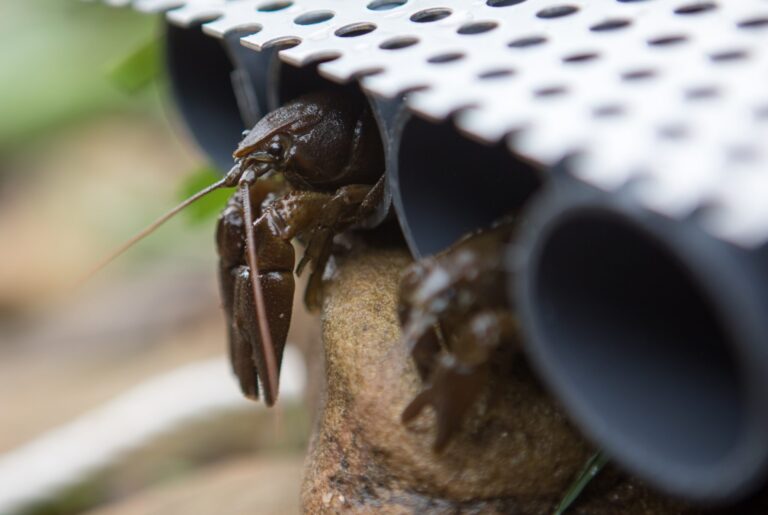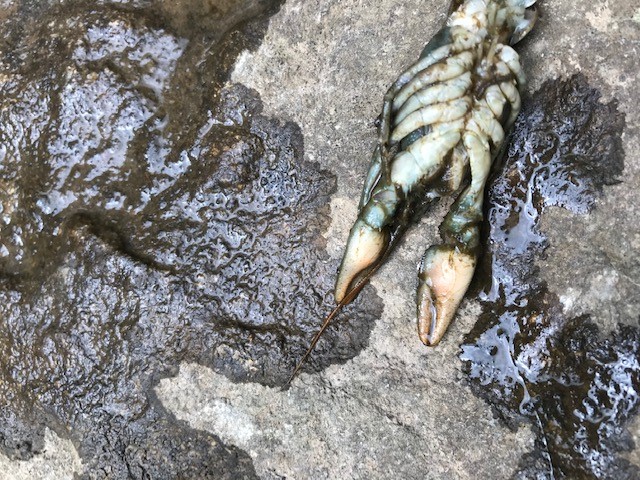The Environment Agency has confirmed a case of crayfish plague in the River Leven at Crathorne, near Middlesbrough.
Ecology officers took samples from the river earlier this month after 40 native white-clawed crayfish were found dead along a 700-metre stretch of the watercourse. Steps are now being taken to prevent the spread of the disease, and the Environment Agency is appealing for help from the public.

Alice Fitch, Environment Agency Team Leader for Biodiversity and Geomorphology, writes:
After receiving the sample test results back from the laboratory, we can confirm that the ecological incident on the River Leven is a case of Crayfish Plague.
We have notified our partners in the area whose associates are regular recreational users of the River Leven. We are keen to know whether the native white clawed crayfish population in the River Leven, which was previously unrecorded, has survived this plague outbreak. If we find that this population remains, we intend to set up a programme to monitor it over the coming years.
To help limit the spread of this disease we are asking all river users to please stay out of the River Leven for the remainder of August. This is because plague spores can stay in the water, and on damp footwear and equipment, for up to 28 days. If people, dogs and equipment do enter the water, or spend time around the banksides, please make sure you are extra rigorous with your cleaning as the spores spread easily to other waterbodies through muddy footwear, fishing gear and recreational equipment like canoes.
This disease is fatal amongst the rare, native white-clawed crayfish population that live and breed in North East waters. It is carried by the invasive American signal crayfish and it is likely that these fungal spores have been transferred from another river or catchment which contains a population of American Signal crayfish.
The Environment Agency would always urge people to ‘Check – Clean – Dry’ their footwear and equipment after spending time in and around watercourses. Anything that has contact with the water and riverbank needs to be cleaned thoroughly after use with warm water and environmentally friendly detergent. Then fully dried for 48 hours to make sure all parasites are killed.
The Crayfish Plague is only harmful to our native white-clawed crayfish and can’t be transmitted to humans or other animals.
If you ever need to report anything to the Environment Agency please use their incident hotline on 0800 80 70 60.
Crayfish plague spores can be spread on damp equipment such as fishing tackle, canoes and machinery. To find out more about biosecurity surrounding this issue, please download the Environment Agency’s Best Practice Guide. If you live close to the River Leven, please also see this related poster.
